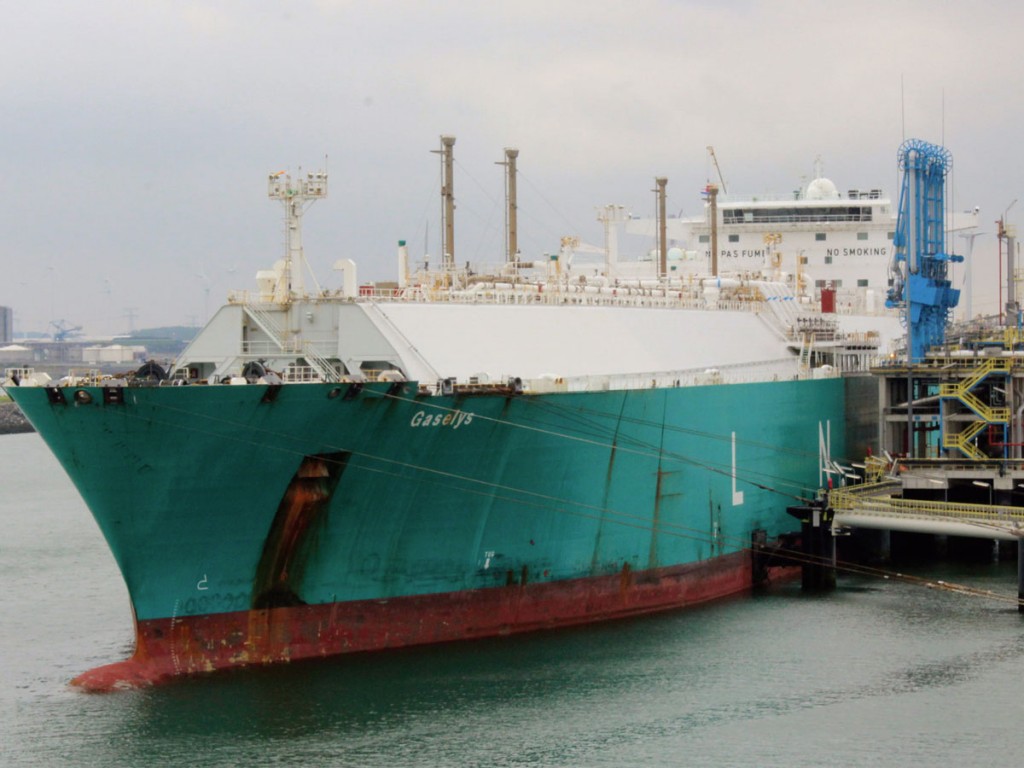Clue: It’s the Jones Act.
During the winter of 2018, the LNG tanker Gaselys, laden with liquefied natural gas from overseas, was spotted in Boston harbor. The French energy company Engie bought the gas to meet demand during freezing weather in the northeast United States. The cargo being carried in the tanker came from a storage tank in the United Kingdom and contained a mix of gas that originated in Algeria, Trinidad and Tobago, and Qatar.

The fact that the US is now a major natural gas producer, raises the question: Why can’t New England buy domestic gas?
It does, but domestic supplies can’t satisfy 100-percent of the region’s demand, especially during the winter and more so since LNG can’t be transported to New England by water. A report from the U.S. State Department noted that pipelines entering Massachusetts bring natural gas from the Gulf Coast, Midwest, and Pennsylvania.
Massachusetts also has the only LNG import terminals in New England, one at Everett on Boston Harbor and two offshore from Gloucester. LNG, used primarily during the winter, provides around one-tenth of New England’s natural gas supply, and is imported from the Caribbean and the Middle East. Why, again, not from U.S. sources?
It’s because LNG can’t be shipped to New England from export terminals on the Gulf of Mexico thanks to the Jones Act. None of the world’s fleet of 500 LNG tankers meets the requirements that vessels moving between US ports be built in the U.S., flagged in the U.S., and crewed by U.S. citizens.
The Jones Act, passed in 1920, prohibits a foreign vessel from transporting merchandise between points in the United States. A violation of the Jones Act may result in the assessment of a civil penalty equal to the value of the merchandise.
There have been attempts to repeal or reform the Jones Act for decades, all without success. If anything, the pendulum is now swinging in the direction of greater enforcement, with the creation in 2017 within U.S. Customs and Border Protection of the Jones Act Division of Enforcement (JADE). JADE was stood up, it is presumed, primarily to catch Jones Act violators in the offshore oil and gas industries. The Department of Justice routinely settles cases which include payment by shipping companies of Jones Act penalties in the millions.
The same dilemma faces companies like Norway’s Statoil, which is heavily involved in massive offshore wind energy projects in Europe, one of which will require the deployment of 4,000 vessels to bring to fruition. The company is looking for offshore wind energy projects to invest in the US, “but because of the Jones Act there are limitations on the vessels we can use,” said Knut Aanstad, the president of Statoil’s U.S. subsidiary. Aanstad suggested that those legislative requirements could impede a company such as his to go all-in on a wind project because of the scale that such a project would require to make it worthwhile.
The same Jones Act requires northeastern utilities to import from foreign markets, even though the U.S. is floating on a sea of cheap surplus LNG.

Follow us on social media: